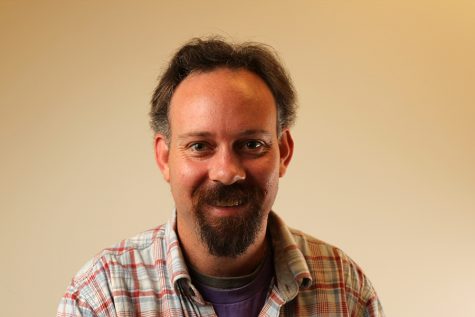ESL boosts multilinguals toward goals
Sep 21, 2016
Faculty members in Contra Costa College’s English as a second language department have shared interests and inherent characteristics that help students of today’s world be successful.
ESL department Chairperson Elisabeth Xiezopolski and ESL professors Shelley Ruby and Lynda Nicol see their academic assistance as rewarding and satisfying when helping their multilingual students overcome the difficulties they face while adjusting to a different language.
“The students keep me motivated. I want them to succeed and achieve their goals,” Nicol said.
Additionally, they all placed a high value in speaking multiple languages.
Xiezopolski said she taught English in Spain for two years and it was an excellent experience.
Nicol said she taught English in Japan for two years.
Ruby said she always has been intrigued with the Spanish language ever since she was a teenager.
“I have always wanted to work in some form of service,” Xiezopolski said. “I’m an immigrant myself to this country. I had to learn English when I got to America as well. I can relate to (ESL) students.”
Nicol said the years she taught English in Japan was fulfilling.
She said there are not as many opportunities for ESL students to speak English outside of class in their home country. In America, there are plenty of opportunities for ESL students to speak outside of school.
Students only get this opportunity if they immerse themselves in trying to understand the language by practicing of how to speak and by writing, Nicol said.
Xiezopolski said that although she worked at private universities she prefers teaching at CCC because the students are “hard workers,” even while having the additional responsibility of taking care of families living in households with two or three generations.
“Many ESL students work many hours during the week and still find time to dedicate to school. They often have opportunities here in America that they never would have had in their home countries,” she said.
Xiezopolski said she has always wanted to do service work. She said she was partly influenced by her mother who was a nurse.
Ruby said both her parents were teachers, so she was raised with an understanding of the education system.
“My mom taught music at (City College of San Francisco) and she used to bring me with her to work,” Ruby said. “In middle school and high school I enjoyed learning Spanish, and started teaching high school Spanish at 23 years old.”
Xiezopolski said how students are effected by the ESL program, depends on opportunity.
She said that if an individual speaks more than one language, the benefits can reduce the risk of getting Alzheimer’s Disease.
Although speaking two or more languages has its benefits, there still are challenges that some ESL students face, Xiezopolski said.
“A challenging part is helping them get community resources like childcare and legal services that they didn’t know they had the right to get,” Xiezopolski said.
She said it’s just as important to pay attention to the instructional and evaluation practices that are promising for today’s multicultural and multilingual classrooms.
Nicol said that being as “student-centered” as possible is important.
Having students provide ideas and formulating opinions using the background they have from their cultures to enrich discussions is crucial, she said.
“If you can become fluent in a second language, then you can communicate well as a manager,” Nicol said. “For example, if you can translate languages in a hospital setting, then you are is more marketable.”


